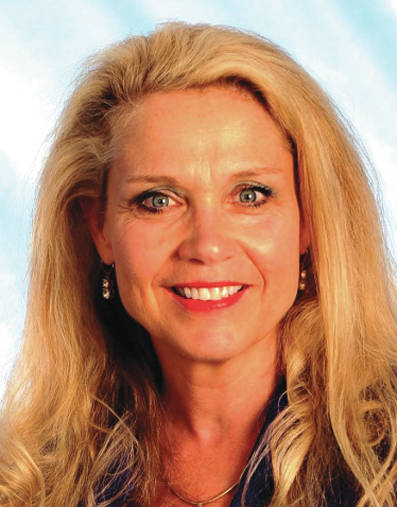
“Public speaking ranks as our No. 1 fear, even outranking the fear of death, says Peter Desberg, PhD, professor of psychology at California State University,” according to www.everydayhealth.com. The website also reports Desberg, who is the author of Speaking Scared, Sounding Good: Public Speaking for the Private Person as saying, “Some people have so much anxiety about speaking in front of an audience that they turn down promotions and ruin their careers.”
I intimately understand this phobic dread, despite being a public speaker for more than 25 years. Yet the first time I presented a brief message in a public speaking class at a Columbus college, I think I actually cried.
This occurred decades ago, leaving my memory about the terrifying experience a little fuzzy. I believe I also received the award for the “most improved” student that semester. Not the “best,” rather the one who no longer dissolved into a puddle of tears making a presentation. Later, I even became part of the Intercollegiate Speech Team at Bluffton University.
Back then, I would have never imagined I would eventually become a (former) TV reporter, speak in conferences, churches, civic meetings, or teach in a university setting. But like many folks presented with a challenging opportunity, we can either close the door due to fear, or we can walk through the open door with our hearts racing with anxiety.
After all, a famous Ralph Waldo Emerson quote says, “Always do what you are afraid to do,” and public speaking terrifies lots of people. With this in mind, I’ve written a list of pitfalls a public speaker can avoid. Most of these, I’ve learned the hard way.
First, “Know your audience.” Define your audience and be aware of the specific demographics, dress appropriately and tailor your message accordingly.
Secondly, “Be prepared.” Absolutely, do a run-through for technical issues at the designated venue ensuring your technology is compatible with their technology. Plus, practice, practice, practice your presentation in front of a mirror, for a willing family member, or even for your dog. Also, make sure it fits into the allotted time slot.
Thirdly, “Be confident.” Your knees might be shaking, your stomach might be rumbling, and you might be perspiring from terror, but employ the classic philosophy, “Don’t let them see you sweat.” Smile and act like “I’ve got this,” even if you feel like you don’t.
Back to the second point, by being well-prepared you will have the confidence to present the subject matter with authority. If, despite your best preparation, technology fails you, proceed without it, acting in complete control, despite the fact you are churning with disappointment.
The fourth vital point is, “Engage your audience.” Avoid the trap of constantly looking down at your notes or monotonously reading from them. It frustrates the listener to hear someone with a riveting message deliver it as though the audience isn’t there. Fear might cause you to look down, but look up. Avoid making eye contact with individuals who appear bored or disapproving, and lock eyes with supportive audience members. It’s the only way you will be effective.
“Engaging your audience” holds true whether you are speaking to a civic club, delivering a sermon, reporting for TV, or instructing a college class. Envision one person in the crowd, who sincerely needs to hear what you have to say. Then speak to that fictitious individual who probably really does exist out there. That way your presentation won’t seemed staged or emotionless.
In closing, another paramount point is to watch for reliance on repetitive words throughout the presentation. Most of us who do public speaking fall into a bad habit of having “pet” words or phrases including: 1) you know, 2) okay, 3) um, 4) and the new “you know,” which is 4) “so.” Whether used when stalling for time to formulate our next thought, as a transition, or due to a bad habit of repeatedly saying the word, this can be quite distracting for the listener and negatively impact our message’s effectiveness.
There are other significant pitfalls, but not enough space to write them all. “So,” if this information isn’t helpful in combating your phobia about public speaking, “you know,” you could run from the challenge. “Um,” but that wouldn’t be a good idea. We never experience success without pushing past our fears to embrace a new opportunity. “Okay?”


